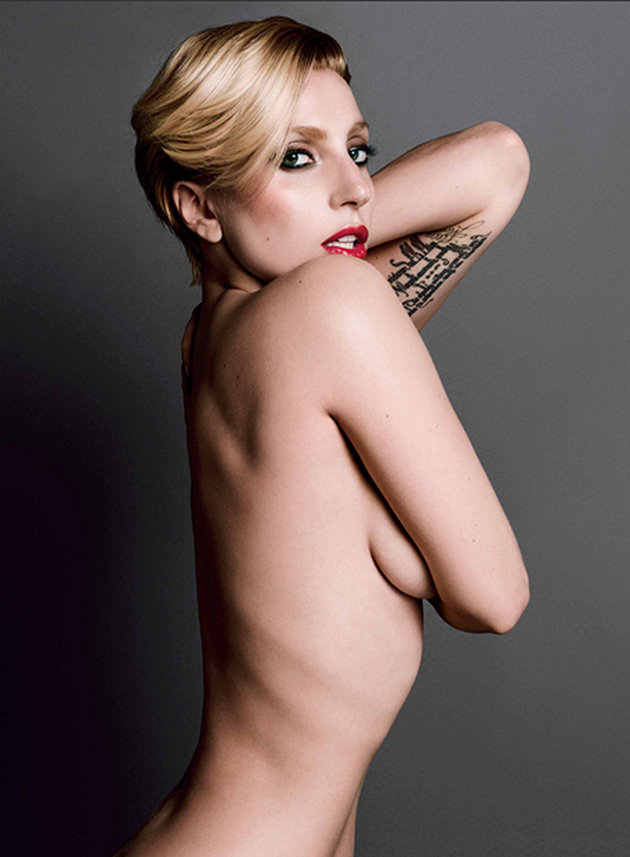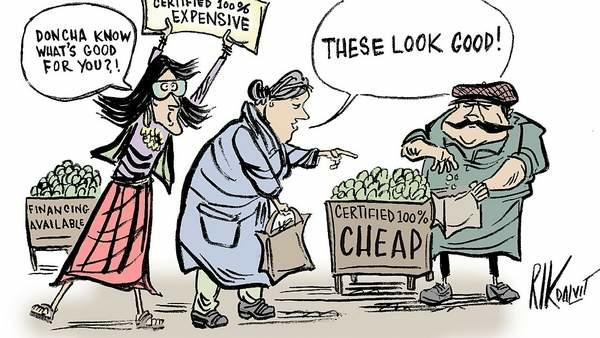Outrage and scorn were delivered to my door; dozens of comments vilified me for saying it was not a real disease - which would have been fine, had I actually said that. Yet dwarfing those comments by hundreds were the anecdotal claims of people who had self-diagnosed themselves as celiac, at least until they discovered that since it was an actual life-threatening disease, they couldn't claim they had it, so they had reverted to being gluten sensitive, or even intolerant - vague and non-descriptive and requiring no pesky diagnosis.
It turns out I was not wrong and the way to know I was not wrong is to follow the money. 'Gluten free' became a $4.2 billion industry in the last year, despite the fact that there are the same number of celiac patients and unless you are celiac, going gluten-free is doing you no good. If you are clueless, like Lady Gaga, you even think it is a diet, which might explain why she ballooned up after going off gluten.
 |  |
Advertising is all about perception, and if you are willing to perceive that going gluten free makes you healthier even if you are not celiac, someone is willing to either label their product that way or charge you more for something new.
And if you like buying meaningless labels, I have good news. Since the FDA has clarified what being called gluten-free means, a lot of products are going to get a new label, even though they never had gluten in the first place; like ice cream, potato chips and meat. Hey, if people will buy non-GMO rock salt, they will buy a package that reads gluten-free meat.

Credit and link: MNN and Shea Gunther's friend Jes, who took the picture.
Phil Lempert, a food-industry analyst who runs SuperMarketGuru.com, was quoted by Ad Age as predicting that "the bubble will burst" in a few years. "Gluten-free products are expensive, so that will drive shoppers away from buying them once they realize little or no benefits from the diet."
Well, there are still 3 million actual celiacs, so the market can't really burst. They likely appreciate the greater choices, if not the scorn of being lumped in with Hollywood actresses. And then there is the market that just never learns. A lot of people bought that book "Wheat Belly" despite the fact that it had even less actual science than Rachel Carson's "Silent Spring". So they are going to keep on spending.
And companies will keep on making the stuff because gluten-free products are 242% pricier and no one minds - at least until the health fad types move onto something new. Then the first rule of labeling will kick in: The most important label is the price tag.

Credit and link: Capital Press





Comments